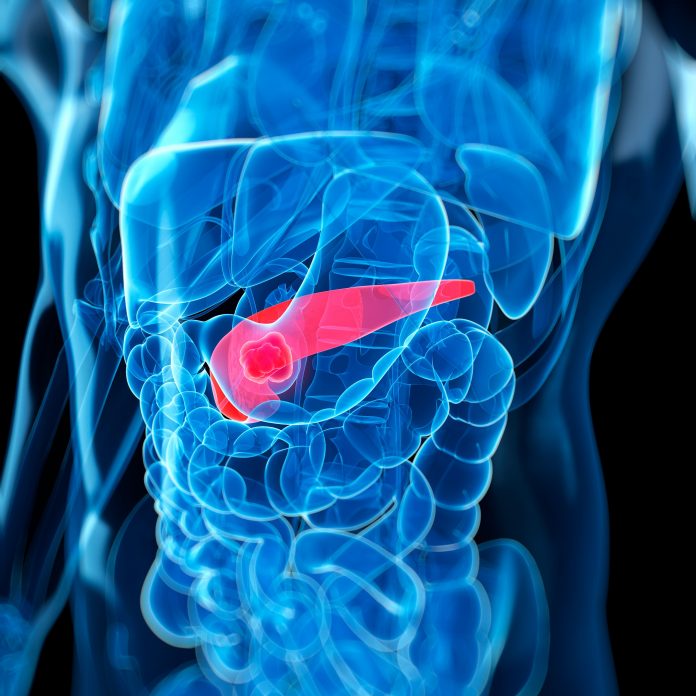
A new study led by researchers at Johns Hopkins Kimmel Cancer Center and Oregon Health & Science University has found that a combination of two drugs could turn pancreatic tumors, which are typically resistant to immunotherapy, into more immune-responsive cancers. Published in Nature Communications, the study offers promising insights into how modifying the tumor’s immune environment can make these hard-to-treat cancers susceptible to immune-based therapies.
Pancreatic ductal adenocarcinoma (PDA) is the most common and aggressive form of pancreatic cancer, known for creating an “immune desert” around the tumor. This immunosuppressive environment attracts cells that block the body’s tumor-fighting T cells, allowing the cancer to evade immune detection. Immune-based therapies, which have been successful in treating cancers like melanoma and lung cancer, have historically had little effect on PDA due to this suppressed immune microenvironment.
In a Phase II clinical trial, a team led by Nilofer Azad, MD, an associate professor of oncology at Johns Hopkins University School of Medicine, and Marina Baretti, MD, an assistant professor of oncology at Johns Hopkins University School of Medicine, tested a combination of nivolumab, an immunotherapy, and entinostat, an epigenetic drug that modifies gene expression by inhibiting histone deacetylase (HDAC). This combination was given to 27 patients with advanced PDA who had already been treated with chemotherapy. The trial showed promising results in a subset of patients, with three participants experiencing significant tumor shrinkage and a period without disease progression lasting a median of 10.2 months.
“This was the first time that we combined these drugs in patients with PDA, and we were reassured by the safety profile,” said Baretti. “We saw a profound and durable response in a subset of patients. Now we need to understand better how we can expand this benefit for a larger patient population.”
Prior studies by Elizabeth Jaffee, MD, a professor of oncology at Johns Hopkins, and Azad showed that entinostat can alter the immune environment in animal models of PDA, transforming the immune-suppressive surroundings into an active battleground by reducing suppressive immune cells and recruiting tumor-killing T cells. In earlier research, mice treated with both entinostat and nivolumab experienced significant survival improvement compared to those treated with either drug alone.
Building on these findings, the team set up the current Phase II trial to assess the combination in human patients. In previous trials testing immunotherapy alone against PDA, the response rate was zero, underscoring the challenge of treating this type of cancer. In contrast, this trial’s combination approach resulted in deep tumor shrinkage in three of 27 patients, marking an important first step in exploring immune-based therapies for PDA.
The team conducted in-depth cellular and molecular analyses, including multiplexed immune histochemistry and RNA sequencing, on blood and tissue samples from patients to understand how entinostat impacts the tumor microenvironment. These analyses revealed that entinostat reprogrammed the immune landscape, decreasing the number of suppressive immune cells and increasing the presence and activity of T cells. This shift allowed the immunotherapy, nivolumab, to better recruit T cells to attack the tumor.
Baretti noted that understanding why only some patients responded to the treatment is crucial. “With an in-depth investigation of the three patients who had this profound and durable response, we’ll try to see if we can tease out specific biomarkers that may have predicted this better response to therapy,” she said. By identifying these biomarkers, researchers hope to develop tools for selecting patients who are most likely to benefit from the therapy.
The team now plans to return to preclinical work, aiming to test entinostat in combination with other immune-targeting therapies and cancer vaccines. Their goal is to expand the treatment’s effectiveness and develop next-generation clinical trials that may reach a broader group of patients with pancreatic cancer. “We hope from this preclinical work, the next generation of clinical trials will emerge,” Baretti said.





